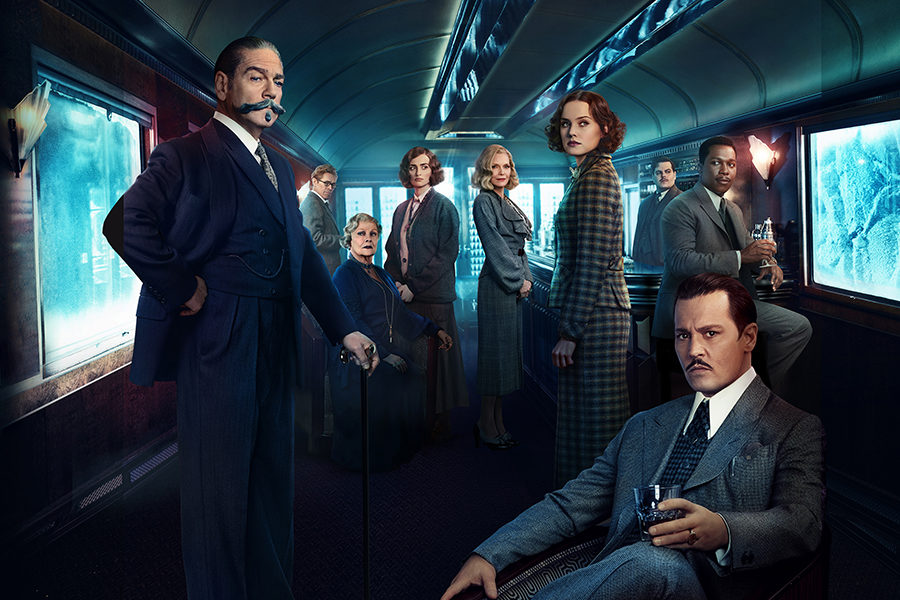The ‘world’s greatest detective,’ Hercule Poirot, finds himself trapped onboard a luxury train when an avalanche strikes during his breathtaking trip through the mountains. Things take a turn for the worse when a passenger turns up dead, and now everyone’s a suspect. Murder on the Orient Express looks good, is bursting at the seams with talent, and tells an interesting story—but it isn’t without flaw.
Murder on the Orient Express is the latest in a long line of adaptations of Agatha Christie’s 1934 novel of the same name. The movie is bursting with talent, starring Kenneth Branagh as famed detective Poirot, as well as Daisy Ridley and Johnny Depp. Each of the cast members does a wonderful job of giving life to their characters, and bring emotion to their roles as the plot develops.
For spending the majority of the movie in the confines of a train, Murder does an excellent job at keeping the film visually fresh. Constantly throwing in creative camera angles and motion for the sake of variety, Murder also utilizes their set pieces to the fullest. The filmmakers find many excuses to bring the characters outside of the train to unveil the breathtaking scenery of the mountains and winter landscape.
The beginning of Murder does a great job of establishing the characters in a manner that paints them larger than life. Each character is introduced to a unique style and you immediately get a feel for their attitudes and background. The passengers have entertaining and comedic exchanges, and alongside a wealth of visual comedy, the beginning of this movie is lighthearted and comedic. However, after the murder, the comedy begins to fade, and the characters lose their previously straightforward nature. Although this plays into the serious murder mystery tone of the film, it is a noticeable shift that leaves viewers wondering if they finished the same movie they started.
The two other major issues that this movie suffers from are a lack of memorable character names and innovation from the source material. As Murder approaches its dramatic climax, our detective begins to piece together the mystery. Unfortunately, it becomes difficult to follow as a viewer, because outside of the main character and the victim, most of the character’s names never stick. The movie could have done a much better job at working character names into the memorable conversation. For example, at an early point in the movie, Hercule’s name is compared to the mythical Hercules, giving the viewer a mental connection to rememberhis name. Also, if you have seen or read any previous adaptation of Murder on the Orient Express, then you already know how it all ends, because this version hardly brings anything new to the table from the other interpretations.
In the end, Murder on the Orient Express is a visually interesting and entertaining whodunit that keeps the viewer engaged, but lack of memorable names and inconsistent mood hurt the movie’s dramatic reveal. If you are new to the story and looking for an interesting weekend murder mystery, look no further than this adventure of Hercule Poirot.
The Parkway West Pathfinder gives Murder on the Orient Express a 6.5/10.



